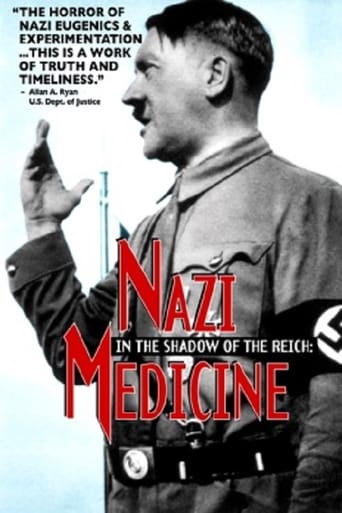
09 Dec 1997

In the Shadow of the Reich: Nazi Medicine
Examines the step-by-step process that led German medical professionals down an unethical road to genocide.
Marcel Gevers

09 Dec 1997

Examines the step-by-step process that led German medical professionals down an unethical road to genocide.
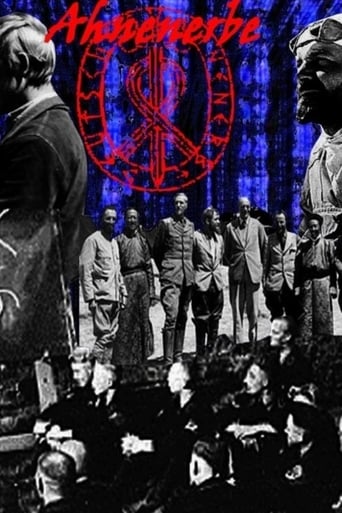
23 Jun 2017

The Ahnenerbe (The adopted heritage). A pseudo-scientific organization which, under Heinrich Himmler's orders, has sought by all means to prove the superiority of the Aryan race over the centuries.
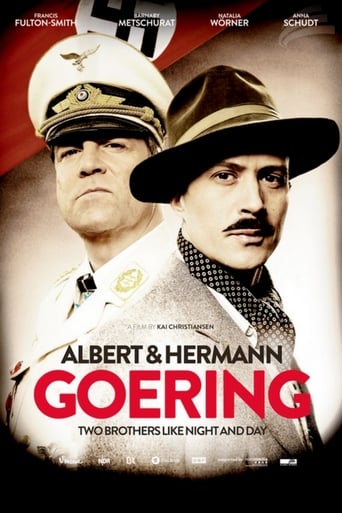
10 Jan 2016

Two brothers who could not have been more different. The eldest, Hermann Göring (1893-1946), was a prominent member of the Nazi regime, head of the German Air Force, and a war criminal. The youngest, Albert Göring (1895-1966), opposed tyranny and was persecuted, but today he is still unjustly forgotten, although he saved many lives while his brother and his accomplices ravaged Europe.
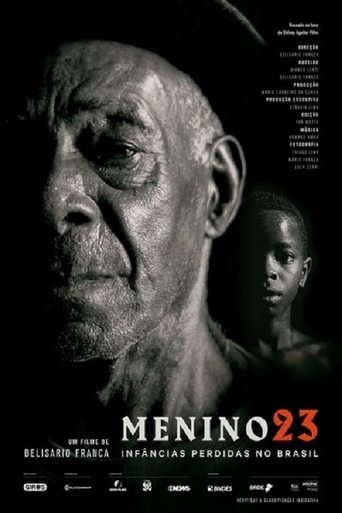
07 Jul 2016

The film accompanies the investigation of the historian Sidney Aguilar after the discovery of bricks marked with Nazi swastikas in the interior of São Paulo. They then discover a horrifying fact that during the 1930s, fifty black and mullato boys were taken from an orphanage in Rio de Janeiro to the farm where the bricks were found. There they were identified by numbers and were submitted to slave labour by a family that was part of the political and economic elite of the country and who did not hide their Nazi sympathizing ideals.
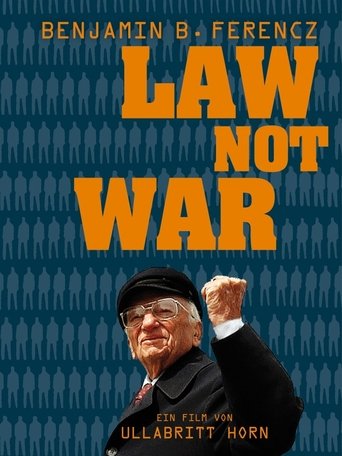
12 Nov 2015

Chronicles the adventurous life of Hungarian-born Jewish lawyer Benjamin Ferencz, who fled to the USA as a child and later became chief war crime prosecutor in the Nuremberg Trials of 1945-1949 and one of the founding members of the International Criminal Court, which entered into force in 2002.
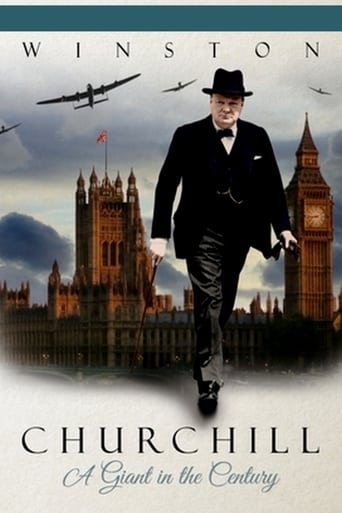
20 Oct 2014

A new look at the public and private life of one of the most important statesmen in the history of Europe: Winston Churchill (1874-1965), soldier, politician, writer, painter, leader of his country in the darkest hours, winner of the Nobel Prize in Literature, a myth, a giant of the 20th century.

22 Oct 2013

The 70th anniversary of the birth of El Santo and the wrestling debut of his son mark the starting point for which El Hijo del Santo will take us into his story. His family history goes beyond the ring through personal memories and records, and brings us closer to his childhood with a father who had a double identity, to the discovery of the hero at home, and the reasons for wanting to continue this legacy.
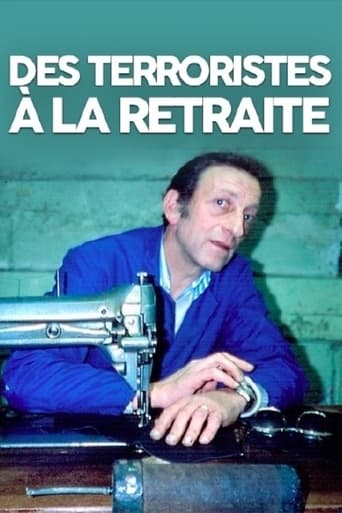
26 Jul 1985

Not just another documentary on the French resistance movement, this film focuses on one particular group of underground fighters in France: those from Eastern Europe. Many were Jews and all had fled their native countries before the war broke out. They were among the most staunch and fearless enemies of fascism, as shown here in personal interviews and memoirs of war-time experiences. But the most famous of these immigrants were 23 who were rounded up among several hundred Parisians in 1943, tried for their activities, and executed -- all were immigrants under the leadership of the Armenian poet Manouchian. After their execution, Paris was papered with posters decrying these 23 martyrs as "foreign communists."
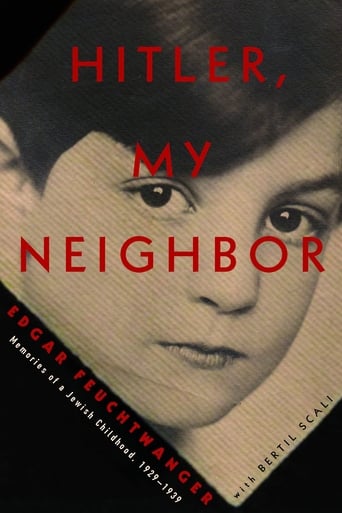
24 Jan 2013

From 1929 to 1939 Edgar Feuchtwanger lived across the street from Adolf Hitler in Munich Germany From his bedroom the young Jewish boy often viewed the Fuumlhrer just across the avenue A schoolboy in Munich at the time Edgar witnessed the rise of Nazism firsthand sharing in the fear and dread felt by all German Jews witnessing the unstoppable ascent of a madman and the start of World War II
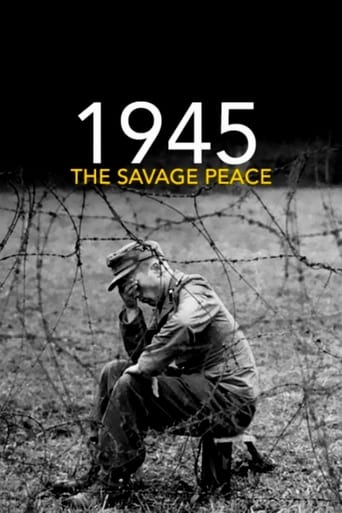
24 May 2015

How, in 1945, after the end of World War II and the fall of the Nazi regime, the defeated were atrociously mistreated, especially those ethnic Germans who had lived peacefully for centuries in Germany's neighboring countries, such as Czechoslovakia and Poland. A heartbreaking story of revenge against innocent civilians, the story of acts as cruel as the Nazi occupation during the war years.

05 Jun 2018

Strasbourg was home to one of three Reich Universities founded by the Nazis, known as a project close to Hitler's heart. The university, founded in 1941, is infamous for the human experiments performed on KZ prisoners by the professors of the medical faculty. What did its dean, Johannes Stein, grandfather of documentarian Kirsten Esch, know of these crimes?
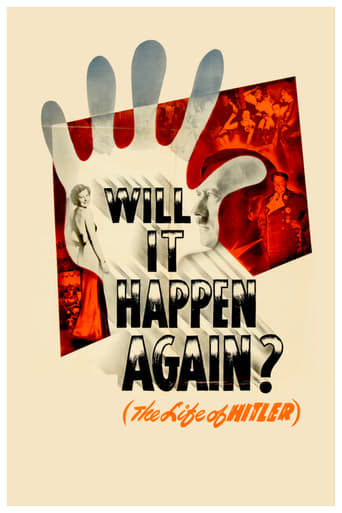
15 May 1948

An account of Adolf Hitler's rise and fall, his relationship with Eva Braun and their days of leisure at the Berghof, their Bavarian residence.

01 Jan 2006

After the World War I, Mussolini's perspective on life is severely altered; once a willful socialist reformer, now obsessed with the idea of power, he founds the National Fascist Party in 1921 and assumes political power in 1922, becoming the Duce, dictator of Italy. His success encourages Hitler to take power in Germany in 1933, opening the dark road to World War II. (Originally released as a two-part miniseries. Includes colorized archival footage.)

14 Aug 2024

No overview found

04 Jul 1943

Propaganda short film depicting the rise of Nazism in Germany and how political propaganda is similarly used in the United States. The film was made to make the case for the desegregation of the United States armed forces.
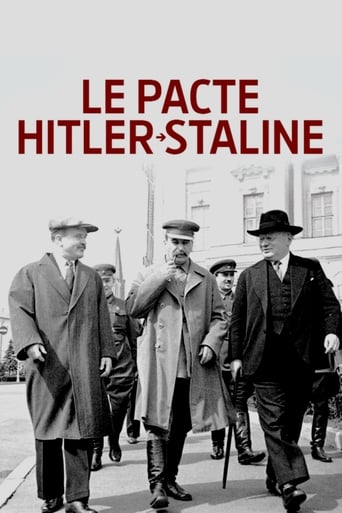
02 Jan 2019

How could Hitler and Stalin, sworn ideological enemies, come to a secret pact in 1939? The captivating and detailed story of the diplomatic fiasco that led to the signing of the Nazi-Soviet pact and its devastating consequences.
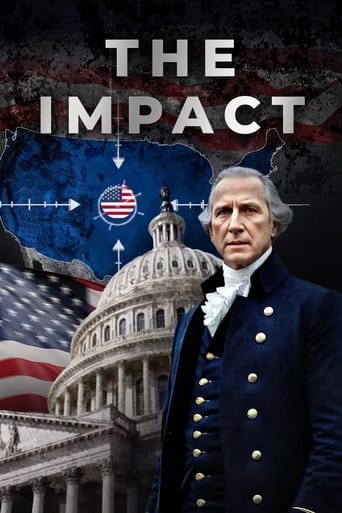
12 Jul 2024

Discover the unsettling truths behind the world's most pivotal events in "The IMPACT." This powerful documentary dives deep into the shadows of global politics and societal control, linking past and present events like never before. From the chilling orchestration behind the 9/11 attacks to the hidden forces in the Ukraine-Russia conflict, "The IMPACT" uncovers the sinister threads woven through decades of deception. Featuring shocking revelations and thought-provoking insights, this film is a must-see for anyone ready to see the world as it truly is, beyond the facade of mainstream narratives. Prepare to have your perspective forever changed.
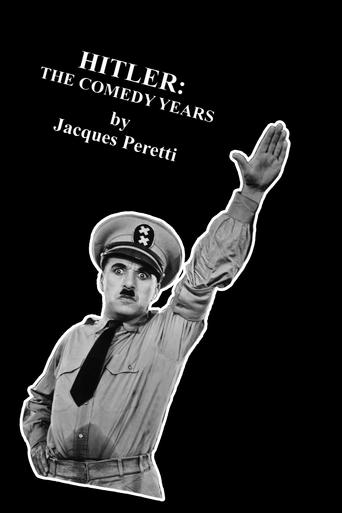
10 May 2007

A documentary about the portrayal of Adolf Hitler in popular culture.
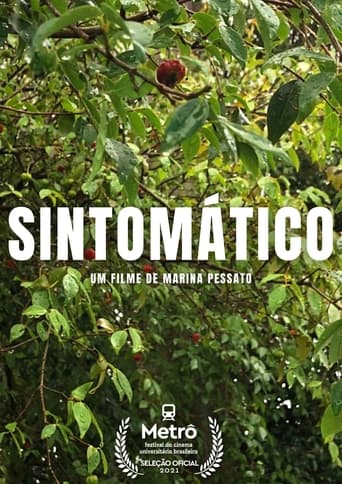
14 Sep 2021

No overview found

10 Jun 2025

Between 1930 and 1945, Eastern Europe experienced mass violence on an unprecedented scale. Hitler and Stalin exploited the vast region for their respective expansionist plans. It is estimated that around 14 million civilians were murdered—primarily Jews, Poles, Balts, Belarusians, and Ukrainians.